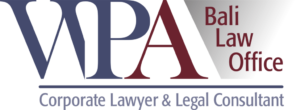
Brief Description
The Government of Indonesia (“GOI”) promulgated Government Regulation Number 24 of 2022 concerning the Creative Economy (“PP 24/2022”) on 12 July 2022 with the aim of optimizing creative economic growth in Indonesia, including by monetizing intellectual property. PP 24/2022 introduces several provisions in the utilization of intellectual property (“IC”), such as IC-based financing, development of alternative financing and facilities provided by the government to optimize creative economy products. Below are some of the points that we underline from PP 24/2022 in more detail:
The Concept of the Creative Economy in Indonesia
The concept of the Creative Economy in Indonesia is an embodiment of IP added value that comes from human creativity based on culture, knowledge, and/or technology. The concept of Creative Economy closely involves Creative Economy actors who are individuals or groups of Indonesian citizens, or business entities established in the Republic of Indonesia to carry out Creative Economy activities (“Creative Economy Actors”).
Creative Economy Based Financing
Within the scope of PP 24/2022, sources of financing for Creative Economy come from the State Revenue and Expenditure Budget (APBN), Regional Revenue and Expenditure Budget (APBD) and/or other sources that meet the requirements. Creative Economy actors can submit applications to receive financing from banks or non-bank financial institutions with IP-based financing schemes, where IP will be charged as collateral to secure financing for Creative Economy Actors. Creative economy-based financing involves several things that need to be considered as follows:
-
Requirements for Creative Economy-Based Financing
Creative Economy actors who wish to receive creative economy-based financing must:
- Have a financing proposal;
- Running a Creative Economy business;
- Have an IP product agreement or arrangement; And
- Have an IK certificate or registration.
2. Creative Economy-Based Financing Objects
PP 24/2022 recognizes that IK can be taken as collateral by:
- Fiduciary security through IK. We note that the fiduciary concept of IP itself is actually not a new concept because Law Number 28 of 2014 concerning Copyright and Law Number 13 of 2016 concerning Patents both stipulate that copyrights and patents can become objects of fiduciary guarantees.
- Contracts/agreements in Creative Economy activities, which include contracts such as license contracts, or work orders for Creative Economy Actors. The right to the contract/agreement can be guaranteed by transfer for security purposes.
- Credit rights from Creative Economy activities, which include the right to receive royalties originating from the use of Property Rights I. Guarantees for credit rights can also be burdened with fiduciary guarantees
- An IP object that can be burdened is an IP that is recorded or registered at the Directorate General of Intellectual Property and is managed commercially by the holder or by a third party through an agreement.
3. Steps to be taken by Creative Economy-Based Financing Lenders
Banks or non-bank financial institutions that will provide creative economy-based financing, apart from distributing and receiving returns on facilities, must:
- Verification of the Creative Economy business from Creative Economy Actors
- Verify the registration letter or IP registration certificate that will become the object of collateral for creative economy-based financing; And
- Conduct an assessment of IP which will be the object of creative economy-based financing guarantees
Assessment of IP objects can be carried out by an appraisal panel which can be a credit assessor and/or an expert appointed by a financial institution. PP 24/2022 also requires the Ministry of Law and Human Rights to create a public database of encumbered Intellectual Property Rights (“IPR”) assets. This will be an important development because prior to the issuance of PP 24/2022, records of encumbered IPR assets (in practice, these were mostly trademarks) were maintained by the Fiduciary Office.
5. Reporting Requirements
Creative Economy actors must register and report creative economy-based financing in the Creative Economy financing registration system organized by the Ministry of Tourism and Creative Economy. It remains to be seen when reporting will take place, whether it will be pre-notification or post-notification, and when it should be reported.
CONCLUSION
PP 24/2022 will become effective one year after the regulation is promulgated, namely in July, 12th 2023.

